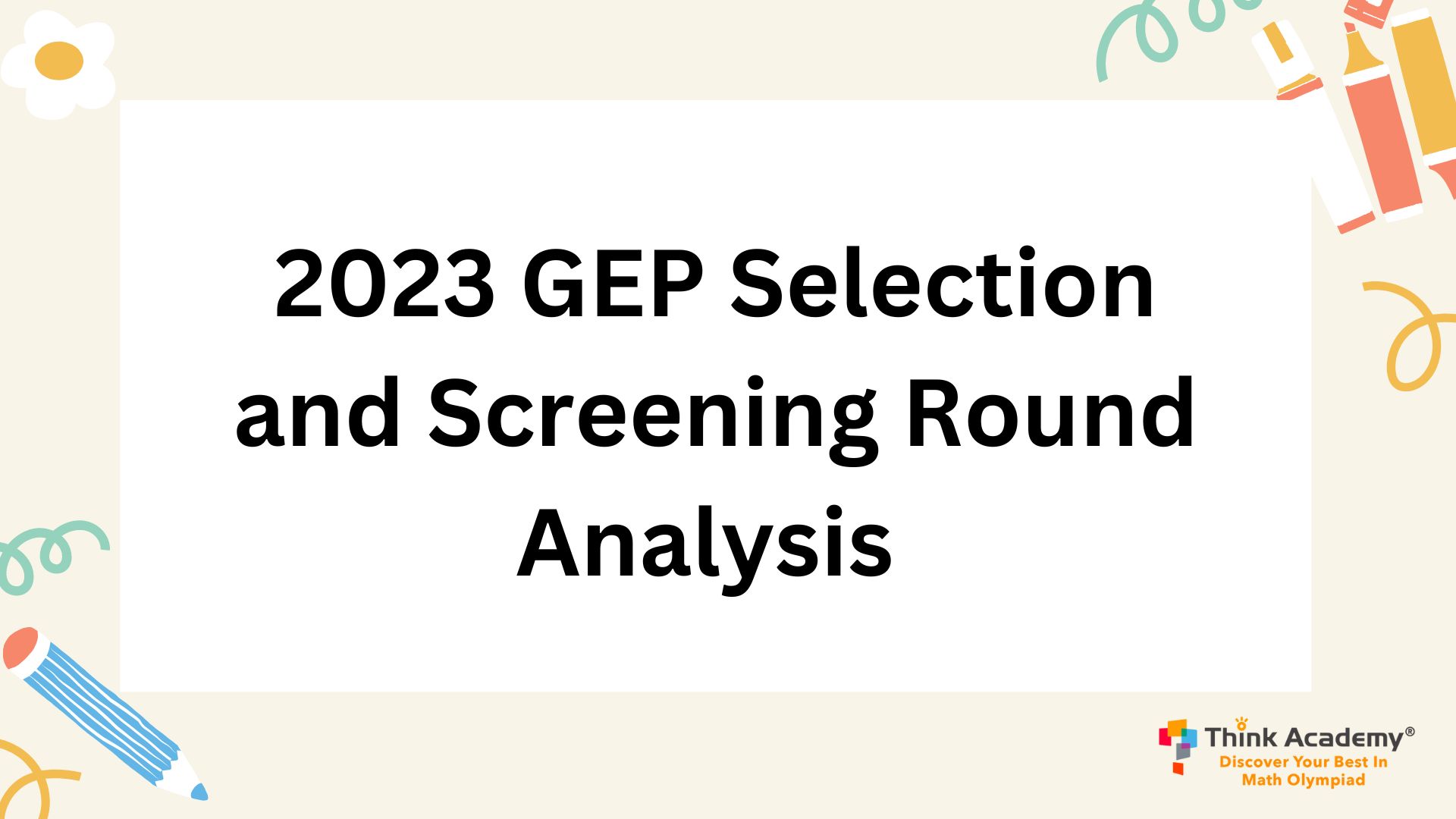What To Expect At The GEP Screening Round
Did you know that the first national exam your primary school-going child must take is not the PSLE but the GEP?
The Gifted Education Programme (GEP) is an identification exercise that happens in Primary 3 to spot the top 1% of students with high ability to nurture their giftedness.
What is GEP?
The GEP programme is offered in 9 GEP Primary Schools in Singapore (read more). The curriculum is not conducted at an accelerated pace but allows students to explore depth of content and process. Furthermore, the product of the learning will differ from the traditional classroom. Students are provided an environment that stimulates learning including out-of-school learning experiences and provides a safe space to take risks.
Think Academy Singapore is launching an all-in-one GEP guidebook. In this book, you will receive a systematic and comprehensive tool that will help your child prepare for the GEP.

- Comprising the top 10 essential topics tested in the GEP Math, the GEP Math book provides an in-depth step-by-step analysis to guide and develop students’ problem-solving skills, accuracy and speed.
- Includes 100 additional challenge questions to help students develop their application ability
- Exclusive General Ability (GA) Guidebook and practice questions provided. The GA guidebook provides students with an in-depth explanation of problem-solving methods through a systematic teaching method. Students can put their new skills to the test through the additional GA practice questions provided.
- Suitable for P1-P3
Differences between traditional curriculum and GEP
Although the GEP Scheme of Work is not publicly available, we can see how the GEP allows more space for students to develop depth of content and critical thinking through the subjects offered.
But this enriched curriculum is available only for selected subjects such as English, Math, Science, Social Studies, and Character & Citizenship. Students with a flair for languages (particularly their Mother Tongue) can choose to take their Mother Tongue at the Higher Mother Tongue level.

A signature subject that differs from traditional curriculum, Individualised Study Option (ISO), provides students with an avenue to develop problem-solving skills through project work. Students may choose from a range of topics such as:
- Individualised Research Study (IRS)
- Innovation Programme (IvP)
- School initiated programmes
ISOs are not graded to instil curiosity and joy of learning.
Additionally, the GEP is also peppered with out-of-school learning, hands-on experiences, and even Values-In-Action programmes that engage the mind and heart of students.
With the abundance of opportunities, it is no wonder that the GEP is a highly coveted programme.
So how should you prepare your Primary 2 or Primary 3 child?
Let’s go through the scope of the exam!
Overview of GEP Identification Exercise
The GEP Identification Exercise happens in 2 phases:
- Screening Round
- Selection Round

| GEP Identification Exercise | Date | Subjects Tested |
| Screening Round | 17 August 2023 | English (1H 15 Min) Math (1H 15 Min) |
| Selection Round | 17-18 October 2023 (2 Days) | English Math General Ability |
For math, the topics tested include topics covered in the P3 Math Syllabus such as:

Most of the questions can be solved using P3 concepts and some creative problem-solving skills. However, equipping yourselves with techniques such as the assumption method (usually taught in P4-P5) and combinatorics for the most efficient use of your time.
The English portion of the Screening Round will test your child on the following components:
- Comprehension
- Cloze passage
- Vocabulary
Our recommendation is for students to develop a love for reading to equip themselves with a large arsenal of vocabulary. From various feedback, the standard of the English component will generally extend to Primary 6.
Analysis of 2023 Screening Round
From speaking to students, the GEP Screening Round’s level of difficulty for English is harder than Math.
The Math component covered calculation, number theory, and application problems, all of which were topics that we covered in our GEP Elite Preparation courses. Notable questions such as remainder, chicken and rabbit, and age problems that appeared in the GEP were also covered in our course.
As for the English component, out of all of the text types, a narrative and exposition text has appeared in this year’s GEP. This could possibly indicate that a literary text (think poetry) is on its way.
How will the Screening Round Differ from the Selection Round
The Selection Round will include an additional component called the General Ability. General ability tests students on their general reasoning ability, learning capacity, observation, and problem-solving skills.
You can even think of it as being similar to an IQ test!
Here are some questions that you can expect to see in the General Ability component.


If your child is naturally curious about the world and loves reading, perhaps the GEP could be a programme he/she aspires to get into.
Stand a chance to be fully sponsored for our Think Academy Math Olympiad Course

If your child is constantly looking for a math challenge, then the Elite Programme might just be for you. The Elite Programme aims to nurture the top 20 math talents and math olympiad medalists in Singapore through this interesting and stimulating programme. This programme is highly selective and requires students to pass a written and interview round.
Get a chance to be sponsored with a full scholarship at Think Academy through the Elite Selection Test
![]() 20 Aug 2024 (K2-P2) and 22 Aug 2024 (P3-P5), 6pm
20 Aug 2024 (K2-P2) and 22 Aug 2024 (P3-P5), 6pm
Sign up for our Elite Programme Selection Test: https://biz.thethinkacademy.com/link/l/EkjE
Free GEP Resources
Looking for other resources for your P2 child? Check out our curated book list the instil the joy of learning!





